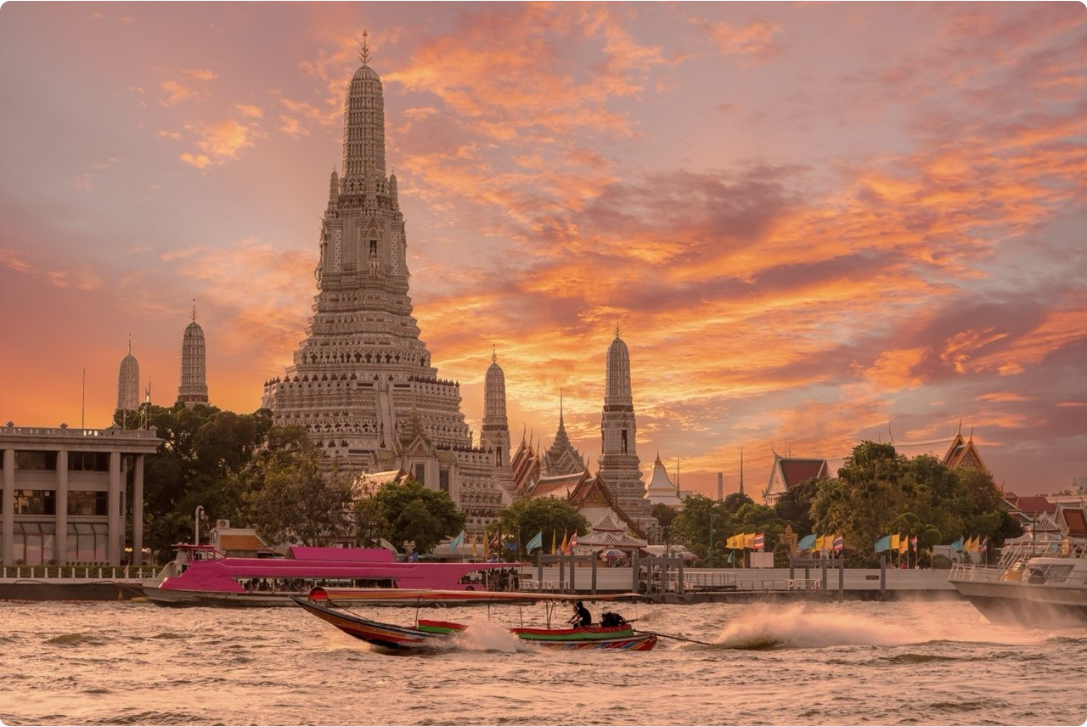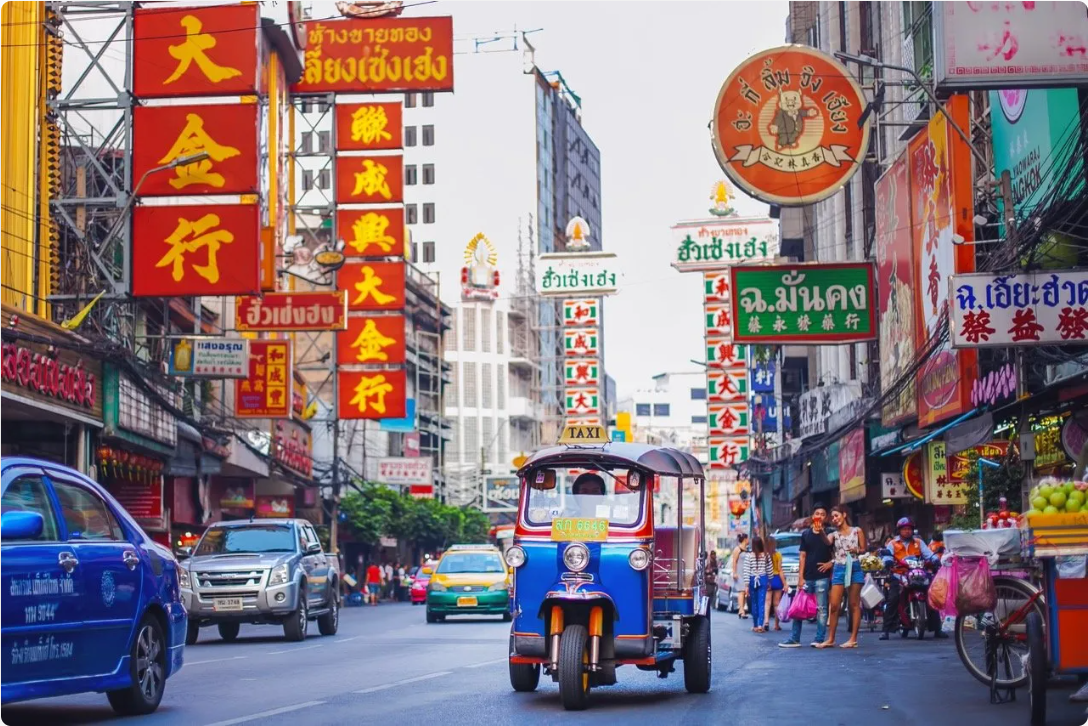What the latest global rankings say about Bangkok
What the latest global rankings say about Bangkok
วันที่นำเข้าข้อมูล 18 มี.ค. 2568
วันที่ปรับปรุงข้อมูล 18 มี.ค. 2568
Hospitality, business, infrastructure, nightlife — wherever you look, Bangkok is cooking. In this article, Thailand NOW rounds up the latest international city rankings and examines what they have to say about living in Krung Thep: “the City of Angels.”
A rising star in the Asia-Pacific region
 Source: Pinglabel / Shutterstock.com
Source: Pinglabel / Shutterstock.com
According to Time Out’s latest 50 Best Cities in the World to Visit rankings, Bangkok is the second-best city of 2025, with South Africa’s Cape Town taking first place. This marks a 22-spot jump from the previous year.
The city’s hospitality, rich cultural heritage, and dynamic food scene were key factors in this meteoric rise. The expansion of the BTS Skytrain and MRT systems has also enhanced urban mobility, making it easier for visitors and locals alike to explore Bangkok’s renowned temples, bustling markets, and vibrant nightlife hubs like Thonglor and Ekkamai.
Similarly, Resonance Consultancy’s 100 Best Cities in the Asia-Pacific report put Bangkok as the second-best city in ASEAN and sixth in the Asia-Pacific based on a combination of metrics that indicate its Livability (e.g., green spaces, rent, price-to-income ratio), Lovability (e.g., nightlife, shopping, Instagram hashtags), and Prosperity (e.g., labor participation, airport connectivity, business ecosystem). For example, Bangkok earned a sub-ranking of No. 3 for Lovability, which includes “vibrancy” indicators like Facebook Check-ins (No. 1) and Tripadvisor Reviews (No. 1). Thailand’s capital also secured the No. 2 spots in both nightlife and shopping, underscoring its reputation as an entertainment and retail hub.
Driving growth with tourism infrastructure investments
Bangkok’s appeal to travelers also remains strong in world rankings, as evidenced by its No. 4 global ranking for shopping and 13th position for attractions in Resonance’s Best Cities in the World list. The city’s thriving food culture continues to shine, with 86% of residents rating its cuisine as “good” or “amazing,” and 84% affirming the affordability of dining out.
Ongoing investments in infrastructure are poised to further elevate Bangkok’s accessibility and connectivity. The Suvarnabhumi Airport Expansion, slated for completion in 2026, will increase annual passenger capacity by 30 million, while the city’s high-speed rail connectivity project, expected by 2028, will further cement its role as a major transportation hub for Southeast Asia.
Bangkok is also prioritizing urban green spaces, with developments like the expanded Benjakitti Forest Park expected to bolster the city’s No. 20 ranking in the Nature & Parks category.
Advancing as a gateway for global commerce

Source: artapartment / Shutterstock.com
Beyond tourism, Bangkok is making significant strides as a global business center. The city surged 11 places to 34th in the 2024 Kearney Global Cities Index, driven by increased business activity and resilience in global shipping challenges. Bangkok also climbed to ninth place in Global Services Location, highlighting its competitive edge in business services and finance.
“This underscores Thailand’s appeal as an offshore destination for business services,” said Chanchai Tanatkatrakul, country head of Kearney Thailand.
Bangkok has shown remarkable progress even as challenges remain. Experts emphasize the need to improve climate action, social equity, and innovation capabilities to sustain the city’s upward trajectory. The Thai government is also pushing for advancements in digital services, aiming to break into the top 40 of the United Nations E-Government Development Index by 2027.
A city to watch
Bangkok’s continued rise in global rankings makes it a city to watch. With expanded transportation networks, cloud-first policy, digital infrastructure, and a robust reputation as a hub for both tourism and business, Thailand’s capital is set to remain one of the world’s most compelling destinations in the years ahead.
| Source: |  |
Thailand Business Information Center in Taiwan